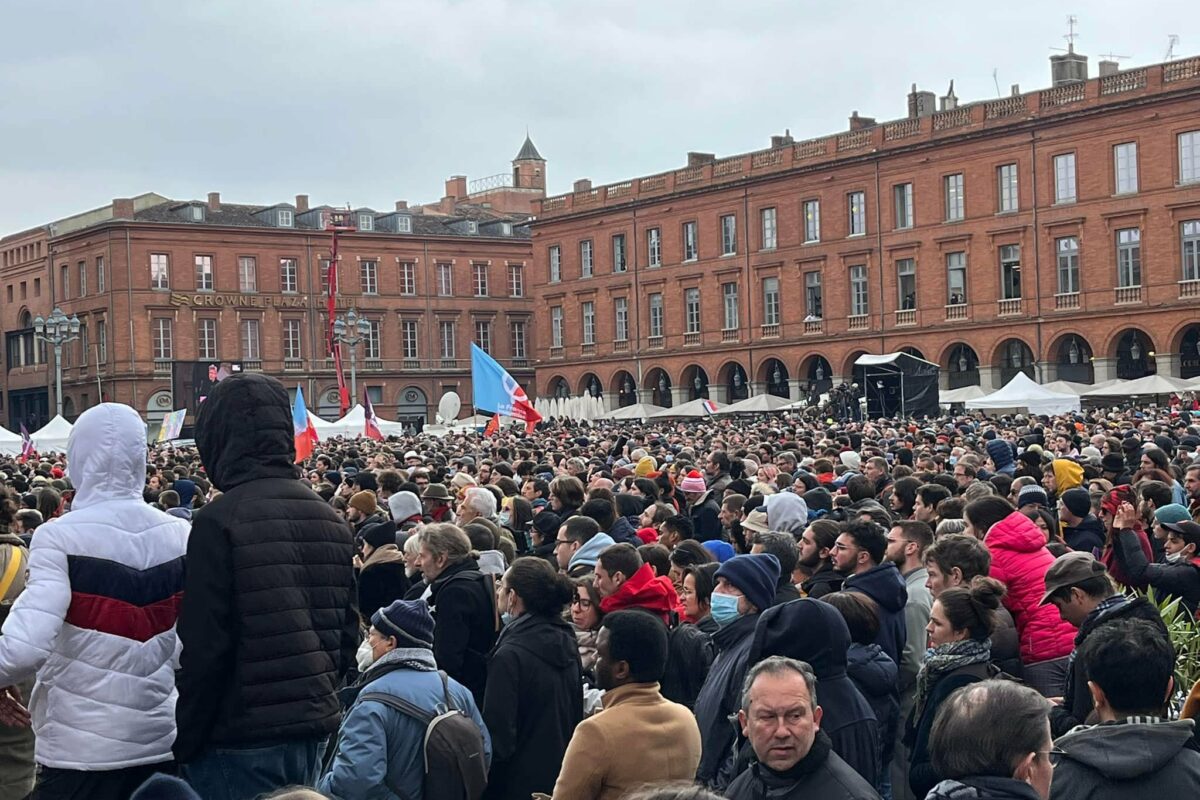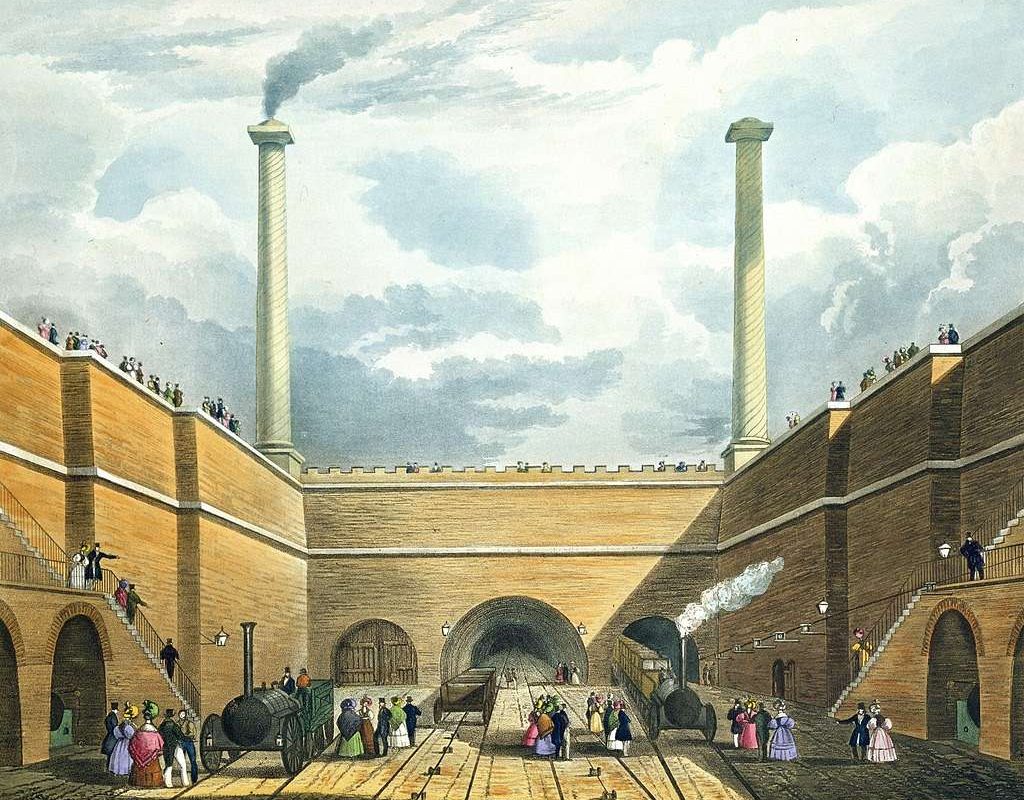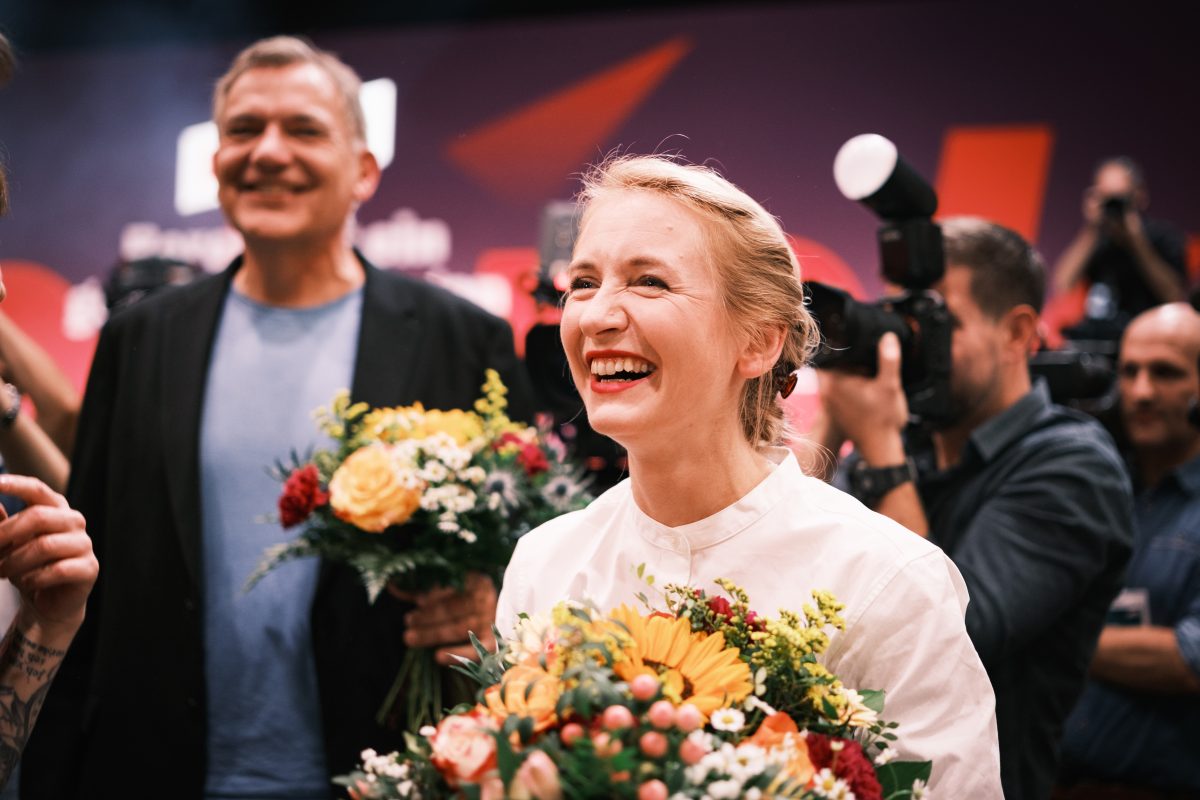In the first part of this article, I analyzed the potential of the new left movement which has been built up in France around Jean-Luc Mélenchon and The France Insoumise, and explained why I thought revolutionaries should support this movement, while, obviously, retaining an independent critical voice. In this second part, I will look at some major differences Marxists have to the main thrust of France Insoumise politics – in particular concerning left patriotism and foreign policy, and I will consider the limits of left governments under capitalism.
Jean-Luc Mélenchon’s programme aims at a “citizen’s revolution” through the ballot box, leading to a rapid and decisive break with the last few decades of wealth trickling ever faster upwards into the pockets of the one per cent. The France Insoumise aims to use state power to break with the main thrust of capitalist neo-liberalism.
How much power does the government have?
There is every reason for anti-capitalists to be cautious about such claims. Whether in Britain in 1964 or 1974, in France or Spain in 1981, or in Australia in 1972, claims for radical change through elections have generally turned out disappointing to say the least. [1] Harold Wilson, the 1960s Labour Prime Minister in the UK, wrote in his memoirs [2] of how stunned he was to realize how little power he had compared with the giant capitalist concerns who could pull the capital investment out of the UK economy, and in the 1970s the IMF showed UK Labour PM James Callaghan who really ruled the roost when push came to shove.
To look at a French experience which I will come back to later in this article – the election of Socialist Party president François Mitterrand in 1981 – who better to understand what left governments can and cannot do than Mitterrand’s wife, Danielle Mitterrand. She recounts how she discussed government power with her husband:
“I used to ask François, “Now you have power, why don’t you do what you promised?” He replied to me that he did not have the power to stand up to the World Bank, to capitalism, to neoliberalism. He said he had won a government, but had not won power. In this way, I learned that being the government, being the president, was not much use in these societies subjected to capitalism and dominated by capitalism. I lived through this experience for fourteen years [Mitterrand was president from 1981-1995]. Even if he tried to avoid the most negative side of capitalism, his dreams very quickly began to collapse […]”
Far more recently, the experience of novel left organizations such as Syriza in Greece and Podemos in Spain, both of which exploded onto the scene in the context of the collapsing of compromised social-democratic parties, have shown they could raise hopes and expectations but, faced with organized ruling class resistance, were not up to the mark. The harsh austerity at present established in Greece is one of the tragic results.
Revolutionaries must analyze these past experiences and patiently explain the limits of electoral politics while taking into account what is new in each situation. Mélenchon’s positions open up important opportunities for us. Faced with the concern that past left governments have abandoned the interests of workers, Mélenchon does not at all avoid the question. On the contrary, he has recently given lectures about what went wrong in the 1980s, and why Mitterrand disappointed. One of these lectures, given in May 2021, on the fortieth anniversary of Mitterrand’s election was entitled “1981: the revolution suspended”. Another was entitled “a complete balance sheet of François Mitterand’s presidency.”
In the first of these, he presents a historical analysis of the Socialist Party victory in 1981, as the end of a political process of which the main accelerator, he insists, was “the ten million workers on strike” in 1968. He underlines that the reforms introduced by Mitterrand were more wide-ranging than has often been recognized: the nationalization of dozens of banks, of electricity companies, engineering companies and of motorways, the doubling of the budget of the ministry of culture and the taxing of the rich. And he insists it is not reasonable to think of Mitterrand and other left leaders as intending to betray.
Mélenchon blames the turn to austerity, only two years after Mitterrand’s 1981 election, on a lack of political courage, a lack of strategy on the left of the left, and a lack of mass mobilization. He takes the time to present thoroughly the arguments in defence of left reformism and its prospects. He deserves serious and thorough fraternal responses from revolutionaries, but such responses are very rare on the French left. [3]
Left patriotism
Apart from this debate about the feasibility of radical transformation of society through parliament, there are two other aspects of France Insoumise politics that I would like to analyze, which have often provoked dismissive comments or insults from the far left rather than convincing responses.
Firstly, one of the France Insoumise ideas with which Marxists cannot agree is the use of left patriotism, and the promotion of those symbols of the French nation – the tricolour flag and the national anthem, the Marseillaise. Mélenchon saw no difficulty, when he recently spoke in Burkina Faso, declaring “I love my country”, and he looks forward to a time when France, having left NATO and rejected colonialist attitudes, plays a positive role in international relations. Marxists, in contrast, have always proclaimed that working people have no homeland, and in wartime, revolutionaries in imperialist countries prefer that their country lose the war. All this does not mean that we must not analyze the specificities of Left patriotism in France today, and it is certainly imbecilic to assimilate Mélenchon’s left patriotism to that of the far right.
The FI leadership consider that national symbols and national pride do not have a fixed meaning. For the right, the flag and the anthem symbolize the supposed glories of colonialism, but, says Mélenchon, the revolutionary origins of the tricolour and the Marseillaise mean they can be used by the left. The right want to tell the people that the soul of France is about Christian tradition and Great White Men, but Mélenchon insists that the soul of France is the barricades of 1789 or 1848, the Paris Commune of 1871, the great strikes of 1936 and 1968, or the Resistance against the Nazis under the Occupation. His idea of France, he says, is “creolization” – mixing cultures and ethnic groups to form something new and vibrant.
Left patriotism obviously sounds less insane when the national motto is “Liberty, equality and brotherhood!” rather than the British motto “Dieu et mon droit”. And the FI is not the only one to go for patriotic symbols. The Yellow Vest movement in France frequently used the tricolour flag and the Marseillaise on demonstrations, and this was not due to far-right influence (which declined quickly after the beginning of the movement). [4] One could see on the Yellow Vest demonstrations groups singing the Marseillaise punctuated with chants of “Macron Out” and other movement songs [5] such as
Here we are, here we are
Although Macron doesn’t like it, here we are!
For the honour of the workers and to build a better world
Although Macron doesn’t like it, here we are!
Nevertheless, if Mélenchon’s left patriotism is structured and progressive in intention, this does not make it correct. One immediate problem it poses is that patriotism, including left patriotism, supposes an identification with the interests of “the country”. Supporting one’s country in the football or at the Olympics is the least of it. We are supposed to feel good if “France” wins market share in aeroplane manufacture, feel sad that it was not the Covid vaccines developed in France that won out, and worry if China is gaining “too much” influence in French-speaking Africa. We are supposed to be horrified at the prospect that some territory at present part of the French Republic – Martinique or Guadeloupe for example – might move towards independence. So, even if the FI programme plans to leave NATO and build a new relationship with French-speaking Africa, the continuing identification with the national state is more than likely to conflict with an identification with the international working class.
Another serious drawback, if patriotic symbols are used to build a left political force, is that these symbols do not have the same meaning for everyone. What is the meaning of symbols like the French flag to those from former colonies, or from African countries still today mistreated by French imperialism? Mobilizing that important part of the French working class of North African heritage is hardly going to be facilitated by patriotic symbols. So, if left patriotism may speak to people, it is fraught with political dangers.
Some on the Left here have denounced Mélenchon for moving away from symbols such as the red flag and the hammer and sickle. This is to misunderstand the meaning these symbols often have in France, the country which fifty years ago had the strongest Communist Party in Europe. Given the crimes of Stalinism and the alliance of the CP with austerity Socialist Party policies while waving ever more red flags, the rejection of these symbols by most workers is unsurprising.
This question of which symbols to use has sometimes led to slightly bizarre situations. At the final meeting of the 2018 Summer School, there was a plan to sing The Marseillaise. Most of the FI MPs were on stage and led the singing, while the music was piped through the loudspeaker system. There was no plan to sing the Internationale. Yet, once the Marseillaise was finished, while the MPs were clapping, several voices from the several hundred in the hall began the Internationale. After twenty long seconds of hesitation, the MPs joined in. Of course this is only an anecdote, but it has its importance. Clearly a majority of people in the room were happy to sing both anthems, and, in my view, this shows an atmosphere where serious debate is possible and Marxists have plenty to say.
Foreign policy
Patriotism is obviously closely linked to foreign policy. France is a major imperialist state. For example, as it just wound down its operation in Mali (a resounding failure), voices on the right were worrying about the declining influence of France in Africa. In a television interview, Mélenchon was attacked because he declared “Mali belongs to the Malians” and said that if the government of Mali decided they wanted no more French troops in the country, he as president would bring them home. The TV journalists were incredulous at the idea that France did not have a God-given right to send its troops wherever it wanted to without asking.
Mélenchon’s foreign policy programme is certainly a welcome slap in the face for the defenders of imperialism. Nevertheless, his plan is to use French state power in a different manner, certainly nothing more radical than that. This is his statement on international power and alliances:
Of course, we are leaving NATO […]First of all, I want to restore our military sovereignty. France with nuclear deterrence must remain independent and manufacture its weapons without depending on American imports. Why should we take on the quarrels of the Latvians or Estonians with Russia, which have been going on for a thousand years? Why should we guarantee the physical borders of Ukraine? I want a non-aligned, alter-globalist France. [6]
So we see the plan is to retain nuclear weapons as a lever for international power, but to use that power differently. This position is in many ways a logical extension of left patriotism. And although non-alignment is preferable to enthusiastic support for war, we are a long way from overthrowing imperialism, and a very long way from reminding workers that loyalty to their class internationally is immeasurably more in their interests than loyalty to their country. Mélenchon recently declared “If I’m leading this country, anyone who wants to push us around had better watch out!”
Conclusion
These three examples (the limits on the power of left governments, the use of left patriotism and the attitude to French foreign policy) all serve to underline how important it is for Marxists in France to have an independent voice. But an independent voice is only useful if it is heard where the masses of political activists who want change are – and in France today, that is massively around the France Insoumise.
Because there is no obstacle to revolutionary currents being active within the France Insoumise, I think this is the best place to be. In a period when most workers are not conscious of the difference between a social revolution and a “citizen’s revolution through the ballot box” it is particularly important that revolutionaries participate in fraternal debate in a milieu of many thousands of activists, not in a milieu of a few hundred. At least three small revolutionary groups, two of around a hundred members each (Gauche révolutionnaire and Révolution!) and one larger current (Ensemble Insoumis) are active inside the FI. Each of them had a stand at the August 2021 Summer School, and two of them produce independent revolutionary papers.
Since he left the Socialist Party to form the Left Party (Parti de gauche) in 2009, Mélenchon has written seven or eight books about political strategy and how to defeat neoliberalism. There is a real shortage of marxists seriously taking up the debate with these ideas of the new left reformism.
John Mullen is an anticapitalist activist in the Paris region. His political website is here :
Footnotes
1 Ian Birchall’s classic and very readable book on reformist socialism is still one of the best explanations. Ian Birchall, Bailing Out the System
2 Harold Wilson, The Labour Government 1964-70, Penguin, Harmandsworth, 1974.
3 A basic revolutionary response from twenty years ago can be found, in French, here
4 See my article here
5 This and other Yellow Vest songs can be heard in this video
6 Le Monde 18 January 2022.




